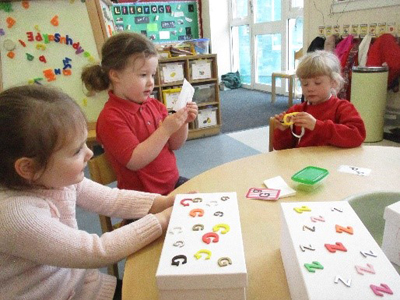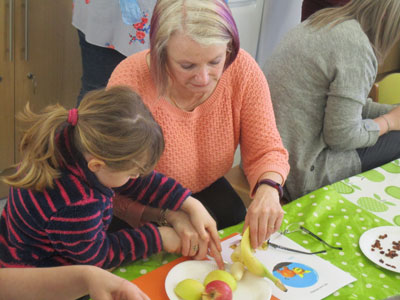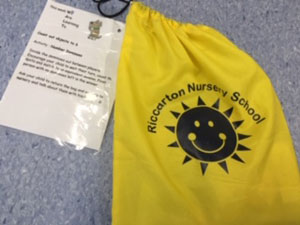Using data to increase parental engagement – Riccarton Early Childhood Centre, East Ayrshire
How to use this exemplar to improve practice?
 This exemplar along with the reflective questions can be used to help practitioners consider their own approaches to involving and engaging parents and families in their child's education. You are invited to read the exemplar and the spreadsheets then consider, individually or as a team, the reflective questions.
This exemplar along with the reflective questions can be used to help practitioners consider their own approaches to involving and engaging parents and families in their child's education. You are invited to read the exemplar and the spreadsheets then consider, individually or as a team, the reflective questions.
Gathering a base line of all parental involvement activities, gives centres a starting point of how well they are doing and identifying which areas (if any) need to be improved. Centres can then monitor at time intervals the level of engagement and record this to evidence improvement.
Tracking the home link activities within the children's personal plans ensures that parents and practitioners work together in supporting the learning at home and identifying if it has an impact on the children's learning and achievement. Parents and children are encouraged to discuss their views of the activities by completing a record booklet.
Reflective questions:
- How do you use data to track parental involvement in your setting/school?
- What change do you want to see?
- What opportunities do you provide for parents and families to engage in their child's learning?
- How do you track and support learning at home?
- Do you have access to a Home-link or community practitioner that can help you take this forward?
Download(s)
Powerpoint presentation: Small groups 2017-18 (56 KB)
Powerpoint presentation: Ricarton Parental Engagement (15 KB)
Explore the exemplar
 What was done?
What was done?
- Induction meetings were poorly attended and a decision was taken to try a small test of change – to have the induction meetings on every child’s first visit day. When the child goes into the playroom the head teacher holds an informal meeting with the parents to talk about the topics such as routines of the day, the play based curriculum, planning and assessment, health and wellbeing initiatives. Parents are introduced to the community practitioner and informed about the supports and workshops on offer.
- Our self-evaluation showed that Play and Stay sessions were well attended. The small step of change was to hold regular workshops on curricular areas and call them Play and Stay (with a twist) e.g Play and Stay literacy, Play and Stay Maths, Play and Stay STEM.
- All the children have personal plans and targets set. To increase parental engagement with their child’s learning at home, a section was added to each child’s personal plan for staff to record initiatives used to support the learning. Staff developed home link bags and sound boxes to assist in developing different skills. Home link games were devised for children being supported through targeted groups.
Why?
The centre is within an area of high social and economic deprivation and had been trying to get parents to attend workshops and events but they were always poorly attended. Through self-evaluation and reflection, the Head teacher and practitioners decided to try different ways of encouraging parents to attend events and support the learning at home.
What was the impact?
 The setting is able to evidence:
The setting is able to evidence:
- 100% attendance by parents at Induction meetings. This ensures that all parents are well informed of the expectations, routines and curriculum initiatives.
- An increase in the number of parents seeking assistance from the community practitioner.
- A significant increase in the number of parents attending workshops year on year.
- An increase in the number of parents engaging in home link initiatives. All children have made a significant improvement in their developmental milestones.
- Increased parental and pupil satisfaction and enjoyment in the activities. This is evidenced through surveys and mind maps.
- Increase in children's confidence.
- Parents are more informed on how their child is learning and progressing.
